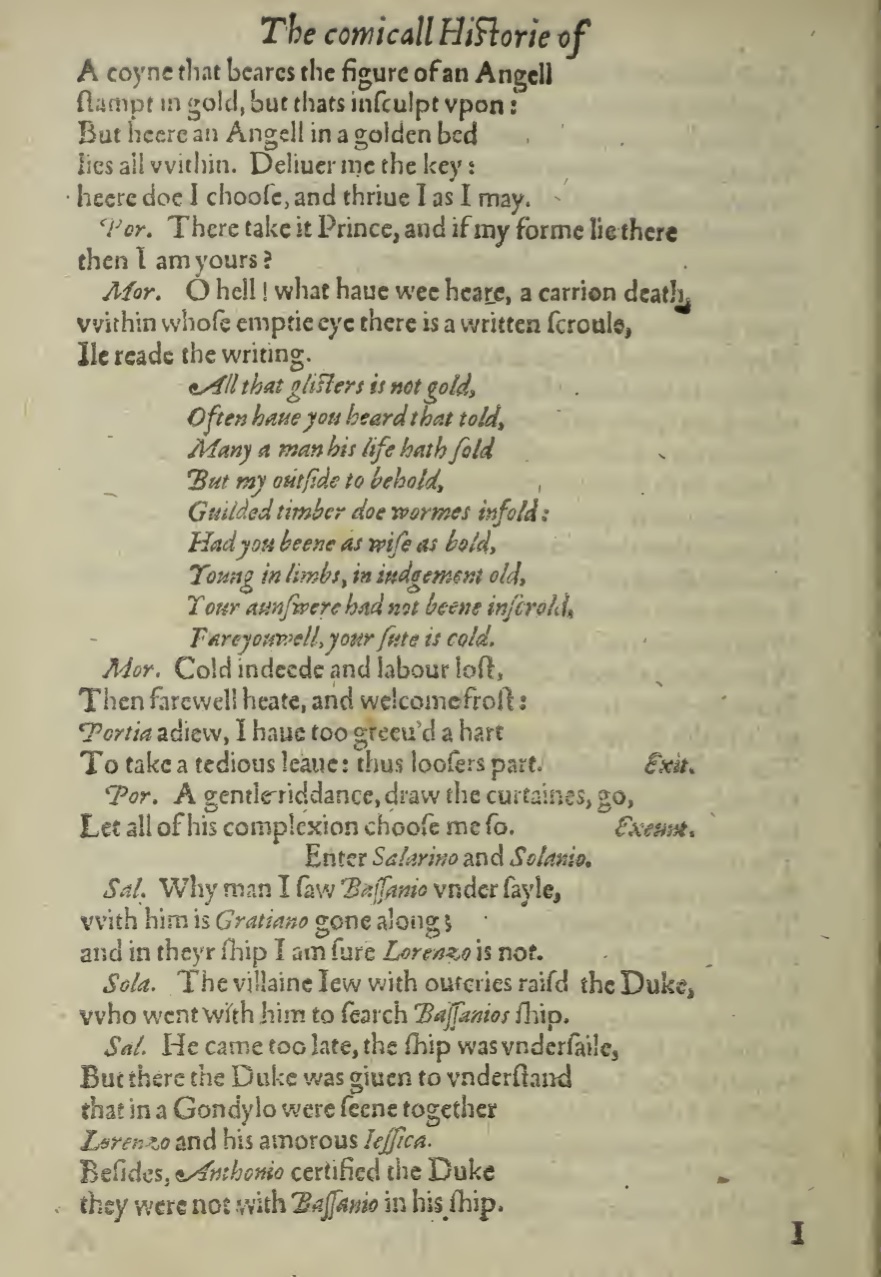Editorial note
In our transcription we really wanted to work on adapting the text in order to be generally more accessible to the modern day reader of the play. During the time at which this play was first being published textual grammatical rules were much more lax, and many words were often spelled out based upon how they sounded verbally as opposed to the translator having a more general knowledge of correct versus incorrect spelling and language. We came to realize that some of the deeper meanings of the text might be lost or overlooked when the reader is spending too much time attempting to mentally translate words and phrases into something more understandable in the context of modern day grammatical norms, so we decided that we would start by translating the text for the sake of clarity.
Some words simply needed a letter change in order to be considered grammatically correct, so we color coded all changed letters as red. If we had to change more than just one letter of the word for it to make sense in a modern day context we marked the changed word with the color blue. We also decided that instead of simply changing the spelling of words, certain specific phrases would be more understandable if there was a slight shift in language.
One such example of this is the phrase “All that glisters is not gold” which is commonly adapted to and most famously quoted as “All that glitters is not gold.” We decided to go with the latter phrase in hopes that the changed verbiage would allow for the reader to spend more time thinking about the moral lesson found within the quote instead of searching for a grammatical meaning. Finally, we decided to change some of the xenophobic language directed towards Shylock and Morocco within the text as it is not socially nor culturally acceptable, even more so in the modern day.
Transcription
A coin that bears the figure of an Angel
stamped in gold but that inscuplt upon
But here an Angel in a golden bed
lies all within. Deliver me the key:
here do I choose, and thrive I as I may.
Portia: There take it Prince, and if my form lie there
then I am yours?
Morocco: O hell! what have we here, a carrion death
within whose empty eye there is a written scroll,
I'll read the writing.
All that glitters is not gold
Often have you heard that told,
Many a man his life hath told,
But my outside to behold,
Guilded timber doe wormes infold:
Had you been as wife as bold,
Young in limbs, in judgement old,
Your answer has not been inscrolled,
Fareyouwell, your suit is cold.
Morocco: Cold indeed and labour loft,
then farewell heat, and welcome frost:
Portia adieu, I haue too greeu’d a hart
to take a tedious leave: thus loafers part. Exit.
Portia: A gentle riddance, draw the curtains, go,
let all of his complexion choose me so. Exeunt.
Enter Salarino and Solanio.
Salarino: Why man I saw Bassiano under sail,
with him is Gratiano gone alone,
and in their ship I am sure Lorenzo is not.
Solanio: The villain Jew with outcries raised the Duke,
who went with him to search Bassianos ship.
Salarino: He came too late, the ship was under sail.
But there the Duke was given to understand
that in a gondola were seen together
Lorenzo and his amorous Jessica.
Besides, Anthonio certified the Duke
they were not with Bassiano in his ship.
Image credit: Rare Books & Manuscripts Department, Boston Public Library, copy G.176.16. The most excellent historie of the merchant of Venice. First Quarto. London: 1600.
Citing this page: Shakespeare, William. The Merchant of Venice, D3v. London: 1600. Cacodemon Digital Shakespeare. Edited by [your names]. Source edition: Rare Books & Manuscripts Department, Boston Public Library (copy G.176.16). http://cacodemonshakespeare.com/comedies/merchant/d3v.
